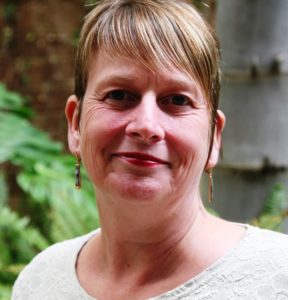
In a national first, Flinders University is pioneering an innovative teaching and learning approach to combat mental health and culture stereotypes.
Teaching and learning resources have been developed for undergraduate students focusing on Indigenous, migrant and Chinese cultural groups to help them better understand the negative impacts stereotyping has on people with mental health issues.
Flinders is marking Mental Health Week with the official launch of the new free online program for cultural awareness in mental health training.
The new teaching materials were developed by Flinders University and the University of Newcastle, Edith Cowan University and Central Queensland University in a two-year federally funded project funded by the Office for Learning and Teaching.
Project leader – Professor Eimear Muir-Cochrane, Chair of Nursing (Mental Health) at Flinders University’s School of Nursing and Midwifery – said connecting mental health with cultural issues for the first time will vastly improve health services.
“For the first time ever, undergraduate curriculums have access to these resources, which help to create a context between stereotyping and misperceptions when dealing with mental health and cultural issues,” said Professor Muir-Cochrane.
“We specifically focus on the issues facing people from Indigenous, migrant and Chinese cultural groups,”
Coinciding with Mental Health Week (4-10 October), the “culturally appropriate and highly relevant” materials was launched by the Minister for Employment, Higher Education and Skills, Gail Gago, at the South Australian Health and Medical Research Institute this week (Wednesday 7 October).
Minister Gago emphasised the importance of understanding mental health issues, congratulating the initiative of Flinders’ School of Nursing and Midwifery.
“Flinders University has a strong reputation for its excellence in teaching and research and these materials will guide and enhance undergraduate health students’ education as they learn about the impacts of mental health and cultural issues,” she said.
“Mental health is just as important an issue as physical health and deserves the same quality of support and educational resources and the Government is committed to providing better mental health support and education to the wider community.”
Reshaping curricula: integrating culturally diverse/mental health online content to prepare work ready health professionals materials includes four online learning ‘journeys’ from the perspective of an Indigenous Australian and both non-English speaking and refugee viewpoints.
Specific focus areas include depression, puerperal (postpartum) psychosis and dementia. The curricula examine issues such as cultural safety, communication and mental health assessment.
The Poche Centre for Indigenous Health and Wellbeing at Flinders University, the Migrant Resource Centre, SA Health and Chinese Welfare Services SA were among the organisations involved in compiling the resources.
“It is important that students continue to develop their understanding of the effects of culture on a patient’s mental health or illness without any stigma or preconceptions,”
“We used positive and negative examples of health professionals communicating with people from different cultural groups about mental health issues and our evaluations demonstrate that these are effective in reducing students’ stigma as well as increasing their skill set for professional practice.”
Professor Muir-Cochrane said mental health and cultural issues were taught separately in the past due to their respective complexities,
“However, we identified a definite need to provide tangible teaching resources to address both issues together,” she said.
“Our online resources will equip students with the skills to address the negative impacts stereotyping and stigma have on people with mental health issues.”
Mental Health Week is an annual national event that aims to improve community awareness and knowledge about mental health illness and reduce the stigma and discrimination associated with mental health problems.

